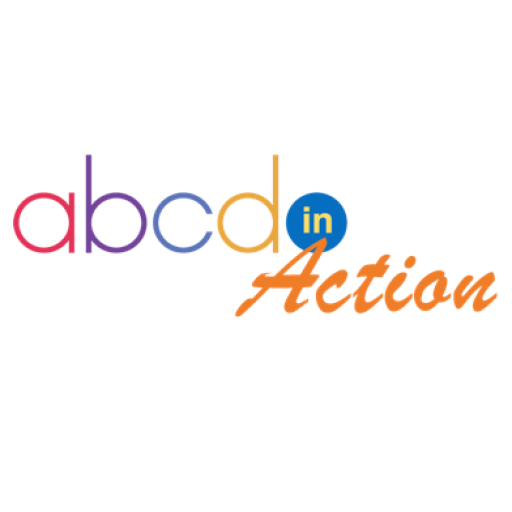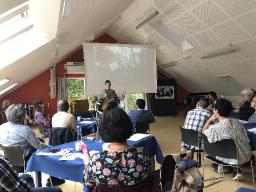
State or Province:
Nova Scotiacountry:
Canadawhat are your gifts and talents?:
Organizing grassroots community development projectswhy do you want to join abcd in action?:
Sharing resourcesThe Resurgence of Folkschools as grassroots ABCD projects

Dinner parties are a challenge. It might not come up right away, but eventually I always get asked, “So what do you do for a living?”
When you run a barter-based folkschool, that’s not a simple question to answer. “Barter” and “folkschool” just don’t compute in North American culture. That’s OK, we have gotten pretty comfortable cutting our own path in Canada as we work to share and amplify the impact we have experienced with the LifeSchoolHouse pilot of folkschools in rural and urban venues across Nova Scotia.
LifeSchoolHouse offers a model of community development that uses folkschool classes to draw people together in community, reducing the impact of social isolation and loneliness. Neighbours meet in living rooms, barns, backyards or community centers to learn from volunteers with experience in woodworking, cooking, preserving, and arts-based programming, etc.
Part of a resurgence of folkschools appearing across North America, LifeSchoolHouse (LSH) is the only known barter-based folkschool model in the world. This means that facilitators are unpaid members of the community who offer to teach and who agree to be compensated by barter items or gifts brought by the class attendees rather than tuition.
Bartering reduces barriers to participation by allowing neighbours to bring gifted items to exchange with the facilitators in lieu of paying for the knowledge or skills being shared. Classes are not free, but everyone in the community is participating within their means, creating accessible programming for all.
The most unique factor in our model is that we have separated out the role of hosts and facilitators. For LSH, Hosts are the volunteers whose dedicated role it is to convene and then support the needs of the community when they gather. The Facilitators focus exclusively on skills sharing, but the act of community engagement, hosting and caretaking rests with the Hosts. In this model, any resources we have managed to gather are also dedicated to supporting these Hosts in doing the work they are best positioned to do, as credible community voices convening locally.
In our pilot that has been running since 2018, nearly every workshop has filled with a waitlist, often within moments of posting. Our evaluation shows that most attendees are joining classes because they are seeking connection in community – the class topic is a secondary factor. By sourcing and sharing the assets and resources from our neighborhoods in this way, we are inviting people into a different sense of connection and resilience. They come for the classes and come back because they want to be part of this growing, interdependent community.
After a sprint of programming in 2018-2020, the LifeSchoolHouse has recently been offered an Affiliate Fellowship with the Ashoka Foundation. We will spend this year working with experienced Evaluators to build out a model to share. We aim to further develop our start-up guide for hosts, to create templates for recruiting facilitators, and to share printable marketing materials and more.
We have a classroom of materials already sharing scripts for hosting that incorporate ideas like “A Circle Way”, some key components of a “Mental Health Toolkit” and a grounding in how to be authentic in your use of land acknowledgments in community programming, etc. Our end goal is to share what we have learned into the commons to demonstrate that it is possible for community leaders to be successful in their community work with very few a start up funds required.
LifeSchoolHouse continues to offer ABCD programming actively across the province of Nova Scotia but is now able to grow organically because our existing hosts are participating in a regional network model that involves peer support and training for hosts in a defined area. We are excited to be learning alongside many experienced and new hosts who are joining our network and we welcome the opportunity to share our successes and reflections with anyone interested in applying the LifeSchoolHouse model in communities around the world. For more information, visit us here.

Jennifer, I love this story for all the reasons that you and John articulate so well. It's so important to recognize the value of human connection and contribution to community. I'm wondering how you are adapting your model during the current pandemic. What is working? What has been changed? Where are the bumps in the road?
Deb
Hi Jennifer. You are doing good, meaningful work. The idea that everyone is a teacher, and everyone is a learner is so important. When I've facilitated ABCD trainings, I have noticed that getting people to think about things that they know or can do well enough that they could teach it to someone else, is a wonderful way to get folks to embrace their inherent value.
I have also worked for a couple of organizations where around a shared lunch, people would regularly 'teach' co-workers something work-related or not. People learned things of course, but more importantly we learned important things about people and their passions.
I agree John, there has been a lot of reframing in our communities as people come to recognize their "value" in context of the skills they have learned around a kitchen table. A simply but effective way to see ourselves and our neighbors in a new light